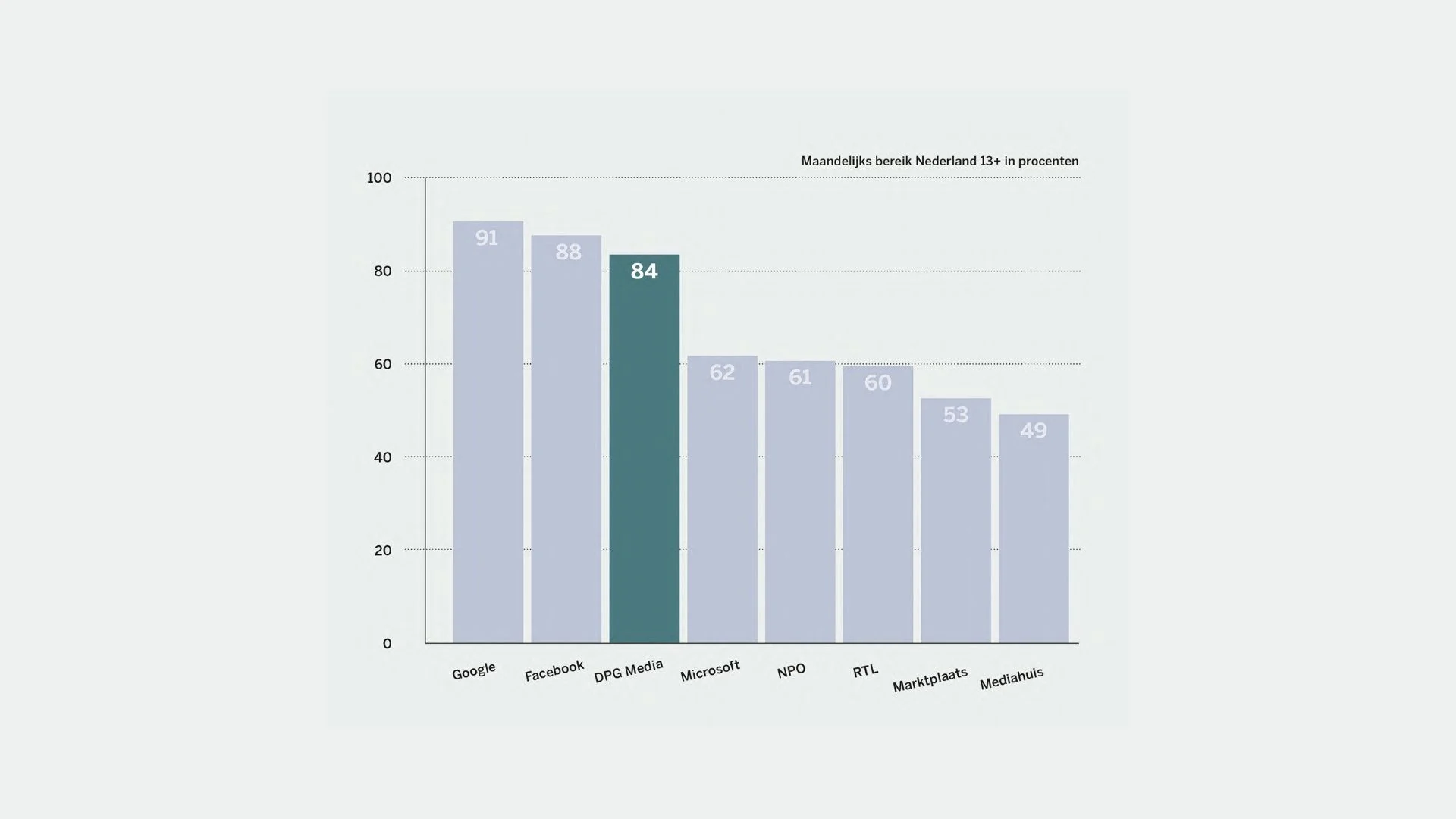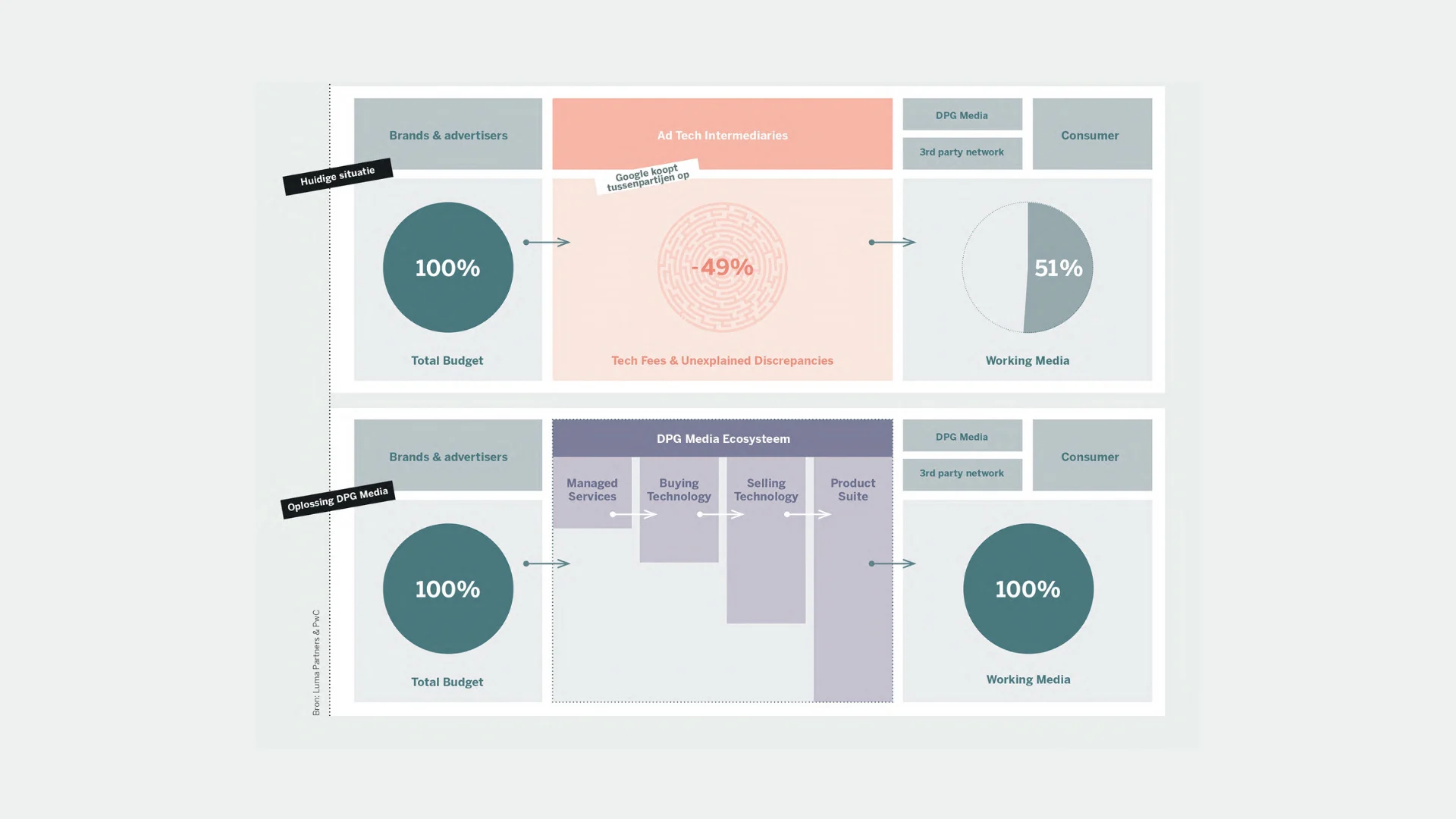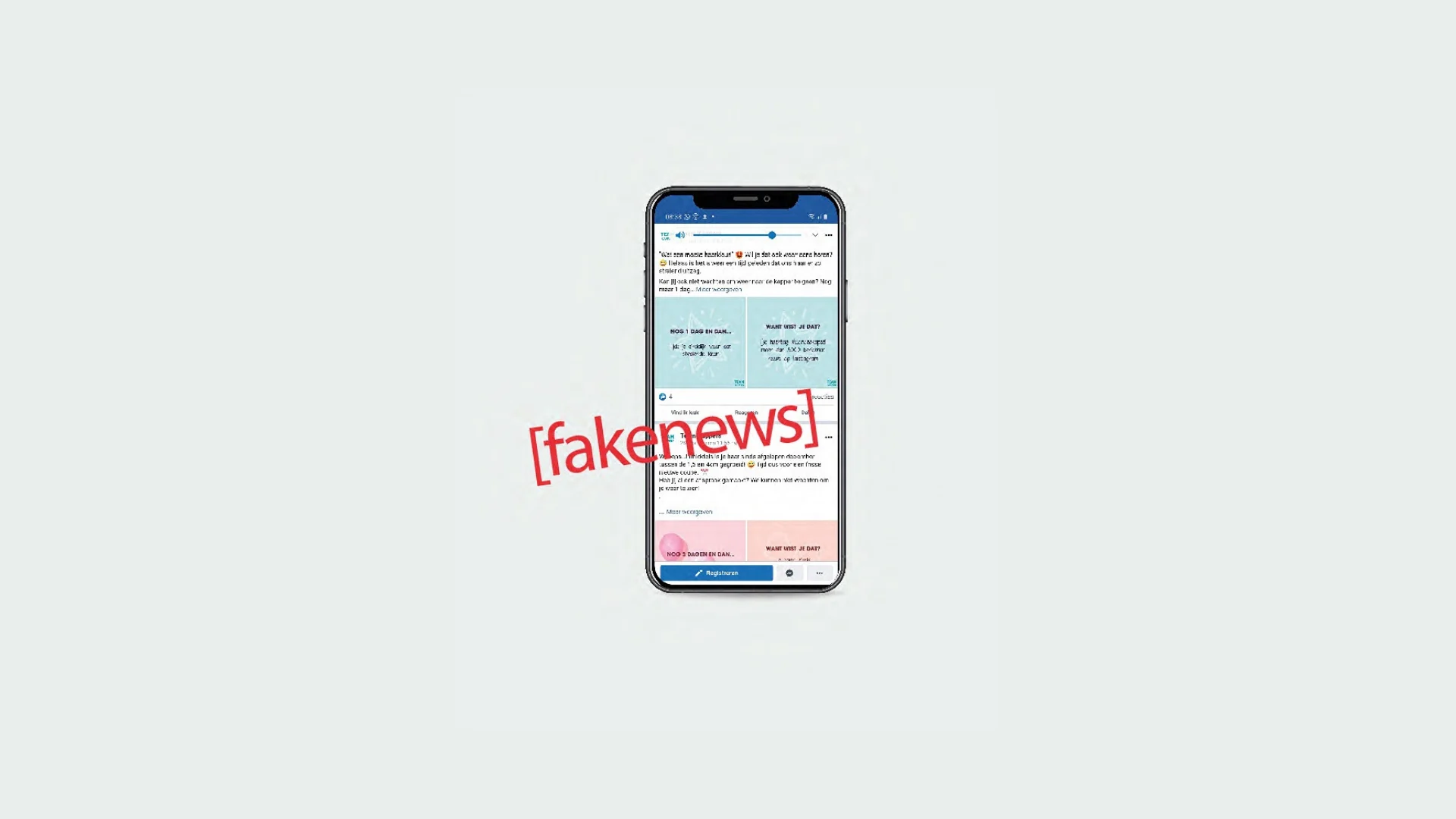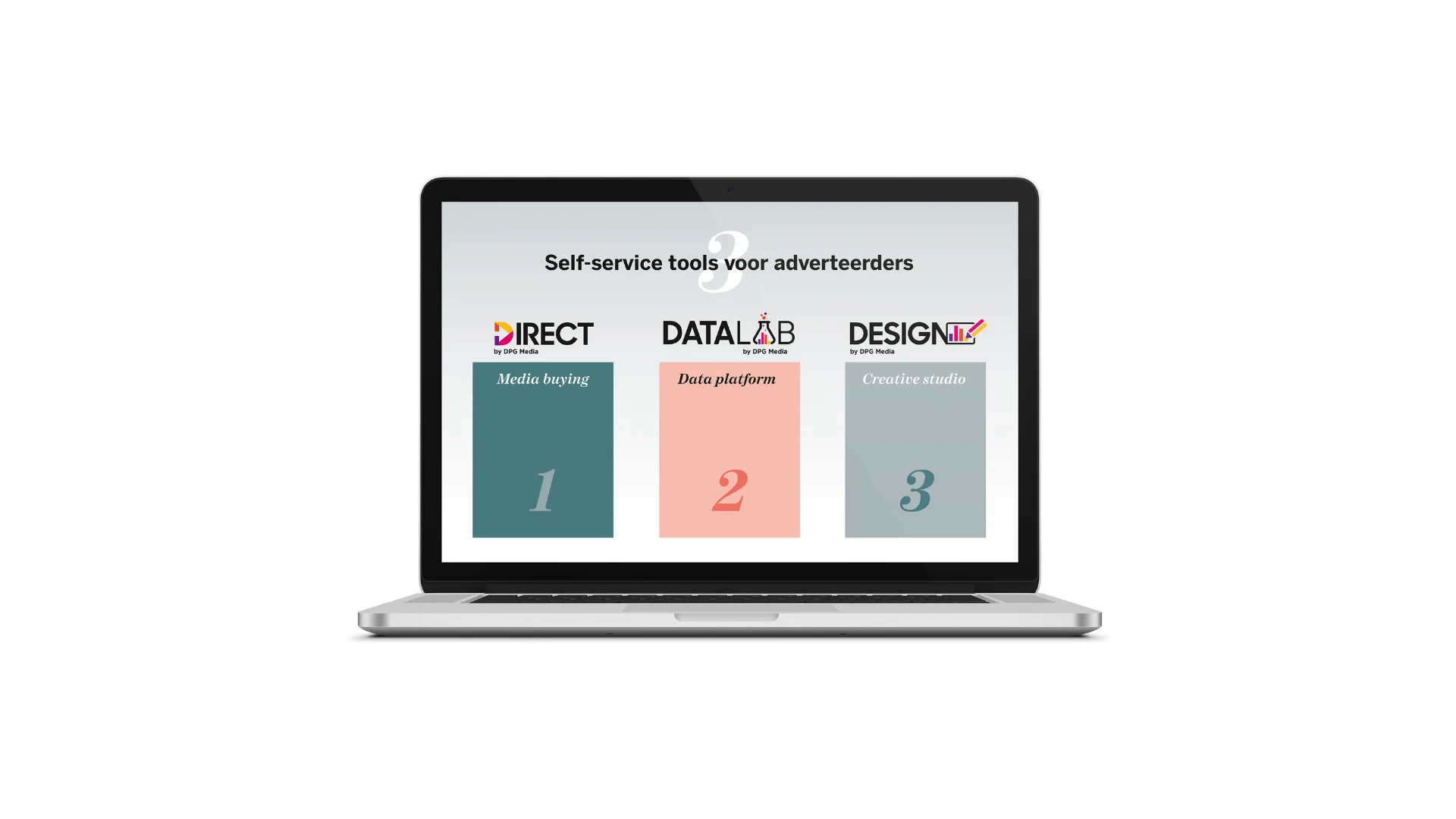
Trusted Web: a new advertising system in five steps
New advertising system explained in five steps
The 'Trusted Web' of DPG Media in Belgium and the Netherlands is a qualitative and reliable alternative for social media platforms and the fragmented 'open web'. Within the 'open web' there is a proliferation of intermediaries who ensure that only a small part of the marketing euro is actually spent on media. Stefan Havik, director of digital business development for DPG Media Netherlands and Belgium, explains in five steps what this own ecosystem looks like: "We can finally build a direct relationship with advertisers and media agencies."1. A proprietary system where the margin no longer leaks away
"In the early years of online advertising, it was logical to go along with the tools of Facebook and Google. They were in the lead; advertising was their main business. But now we are going to make sure that everyone can easily use our media and our own data about reach. Everyone from the baker around the corner to the media agencies. We will compete with the simple interfaces of Facebook and Google Adwords, and with our own system there is no margin leaking. So we can offer advertisers lower prices and still be better off."

2. That's why we do this
"Between the advertiser and the publisher, an opaque landscape has emerged. This happened because suddenly thousands of advertisers and thousands of websites had to be connected. Meanwhile, a ridiculous amount of money is tied up in it and it happens non transparently. Google has bought up and connected almost half of the intermediaries, further reducing advertiser and publisher control and insight. It's embarrassing, so we are taking a step back in our cooperation with Google. Our new partner for ad tech, Xandr, works transparently and is careful with data. From now on we have control over our own prices again, nobody can come between us."


3. Better than advertising on social media
"Besides the negative impact of social media on society - look at the polarisation and a film like The Social Dilemma - recent research also shows that if consumers associate your brand with hate speech and fake news, 38 percent simply won't buy your product anymore. In addition, there has always been a lot of fraud in this intermediary system. This ranged from real fraud such as domain spoofing (imitating an existing website) to subtle tricks to mask leaked costs. We offer an environment with only verified quality news. We are completely transparent about costs and results. With our own ecosystem, we can guarantee that every euro is spent 100 per cent on media, and not on the junk in between. And we can also customise which topics the advertiser does and does not want to be on. So that really makes the system a 'Trusted Web'."
4. What our size means for our place in the digital advertising landscape
"We now reach roughly as many people as Google and Facebook in the Netherlands and Flanders, together with partners such as RTL. That means we are a priority in the advertiser's media planning. But something else is even more important: because of our size, we can suddenly play a completely different role in the complicated digital advertising landscape. We can finally build a direct relationship with advertisers and media agencies. This way we get rid of the proliferation of intermediaries and regain control of our own shop."

5. This is how DPG Media deals with data
"In this, my mother is my benchmark. If she does not understand how we handle her data or she does not like it, then it will not be allowed in the long run. Now that privacy regulations are becoming stricter, the current system with these intermediaries is collapsing like a house of cards. The tracking cookies on which our advertising income depends will disappear from all browsers. Without knowledge of the visitors, there will be little left of our advertising revenues, so within a few years we need to build a mature alternative that allows you to buy our media and allows us to use data transparently. We are betting on our own ecosystem with logged-in visitors. Right now, the data still goes through that whole intermediate system, but in the future it will remain in our hands. We can then explain to our readers how we use data, give them a say and guarantee that it stays within our own walls. If we are transparent enough, consumers will feel comfortable with it. In short: it is impossible to deal with user data properly if you do not own it. With its own ecosystem, DPG Media can."
